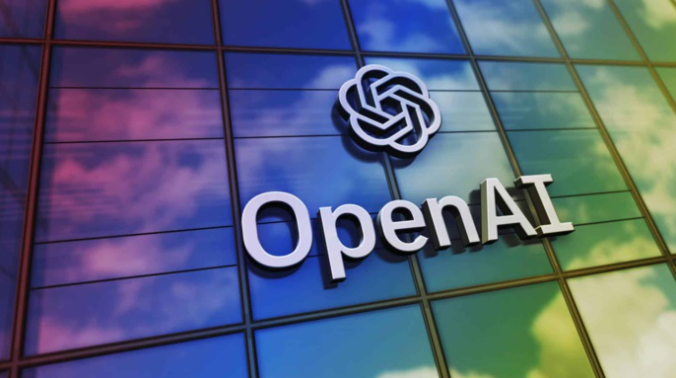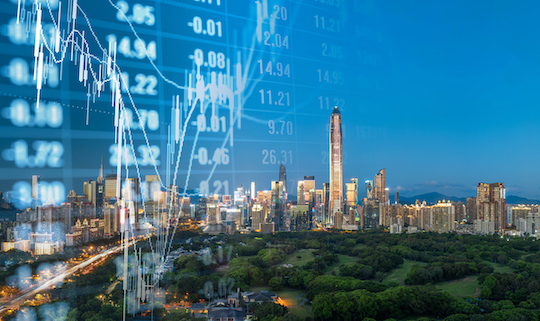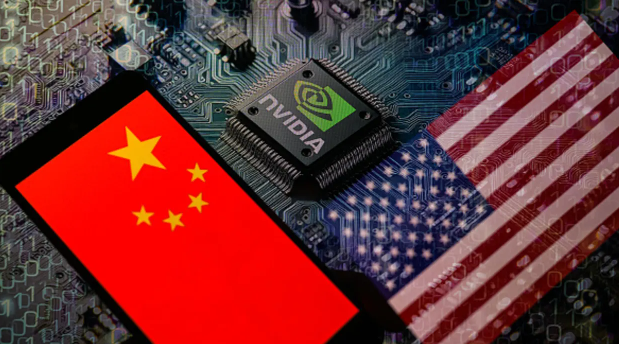Daily Synopsis of the New York market close
Date Issued – 28th November 2024
Preview
Elon Musk has called for the elimination of the Consumer Financial Protection Bureau (CFPB), describing it as a redundant regulatory body. His stance aligns with his role on Trump’s advisory board for government efficiency, where he aims to reduce federal bureaucracy. Critics argue that the CFPB has targeted fintech firms and crypto entrepreneurs, while the agency defends its efforts to combat consumer deception and safeguard against discriminatory practices. The potential dismantling of the CFPB could ease compliance burdens for startups but might heighten consumer risks. Nissan’s global production dropped 6% in October, and the company faces mounting pressure from President-elect Donald Trump’s proposed 25% tariffs on imports from Mexico and Canada.
Elon Musk Calls for Scrapping the CFPB Amid Regulatory Criticism
Elon Musk, a key adviser to the incoming Trump administration, has called for the elimination of the Consumer Financial Protection Bureau (CFPB), describing it as a redundant regulatory body. In a late-night post on his social media platform, X, Musk wrote, “Delete CFPB. There are too many duplicative regulatory agencies.” His remarks echo recent criticism from venture capitalist Marc Andreessen, who accused the CFPB of stifling innovation and favoring large financial institutions over startups, particularly in fintech and crypto.
Critics argue that the CFPB has targeted fintech firms and crypto entrepreneurs with lawsuits and fines, claiming the agency protects big banks by blocking new entrants. However, the CFPB has defended its actions, citing efforts to combat consumer deception and safeguard against discriminatory practices in financial services.
Musk’s stance aligns with his role on Trump’s advisory board for government efficiency, where he and Vivek Ramaswamy aim to reduce federal bureaucracy. Notably, Musk’s own company, X, has sought licenses to expand into payments — a move that could bring it under CFPB oversight.
Investment Insight: The potential dismantling of the CFPB could ease compliance burdens for fintech and crypto startups, potentially spurring innovation. However, reduced oversight might heighten consumer risks, creating a more volatile regulatory and investment landscape.
Nissan’s Global Production Slumps in October; U.S. Tariff Threat Looms
Nissan’s global production dropped 6% in October, marking its fifth consecutive monthly decline, with steep output falls in China (-15%), the U.S. (-15%), Britain (-23%), and Japan (-4%). Mexico stood out as a bright spot, with production rising 12%, accounting for nearly a quarter of Nissan’s global output. Global sales fell 3%, though U.S. sales grew 13%, driven by the Sentra sedan.
Amid restructuring efforts, including job cuts and capacity reductions, Nissan faces mounting pressure from President-elect Donald Trump’s proposed 25% tariffs on imports from Mexico and Canada. Nissan, which exported 300,000 vehicles from Mexico to the U.S. this year, is closely monitoring the policy’s potential impact.
Investment Insight: Trump’s tariff threats could disrupt supply chains and increase costs for automakers reliant on Mexican exports, including Nissan. Investors should watch for potential shifts in production strategies and the broader impact on U.S.-Mexico trade relations.
Market price: Nissan Motor Co Ltd. (TYO: 721): JPY 374.00
South Korea Cuts Rates Amid Trump Tariff Concerns
The Bank of Korea (BOK) surprised markets with a second consecutive rate cut, lowering its key rate to 3% to counter economic risks posed by President-elect Donald Trump’s proposed tariffs and shifting global trade policies. The BOK also slashed its 2025 growth forecast to 1.9%, citing heightened uncertainties for South Korea’s export-reliant economy.
Trump’s potential 25% tariffs on trade partners, including South Korea, and a rollback of subsidies for foreign firms like Samsung and Hyundai, are expected to pressure exports and investment. The move marks the BOK’s first back-to-back rate cut since 2009, underscoring its urgency to shield the economy from a prolonged slowdown.
Investment Insight: The rate cut may weigh on the Korean won but signals policy prioritization of economic growth over currency stability. Investors should monitor trade policy developments closely as tariff risks could challenge South Korea’s export-heavy sectors and corporate performance.

China’s EV Boom Accelerates Decline in Gasoline Demand
China’s rapid adoption of electric vehicles (EVs) is reshaping its energy landscape, with EVs and hybrids accounting for over half of retail passenger vehicle sales since July. Analysts now expect Chinese gasoline demand to peak as early as next year, with annual declines of 4–5% predicted through 2030. This shift poses a significant challenge for the global oil market, which has relied on China as a key driver of demand growth for decades.
Diesel consumption is also in decline, with UBS projecting annual drops of 3–5% due to the rise of electric and LNG-powered trucks. While uncertainties remain around hybrid vehicle fuel usage and full electrification timelines, Beijing’s decade-long focus on EV subsidies and infrastructure has positioned China as a global leader in transport electrification.
Investment Insight: Plunging gasoline demand in China could weigh on global oil prices and disrupt energy sector investments. Investors should watch for shifts in oil market dynamics, while exploring opportunities in EV supply chains and green energy infrastructure.
Intel’s $7.86 Billion Subsidy Ties Chip Unit Control to U.S. Oversight
Intel’s $7.86 billion subsidy deal with the U.S. government includes stringent restrictions on selling stakes in its chip manufacturing unit, Intel Foundry, if the division spins into a separate entity. Under the agreement, Intel must retain at least 50.1% ownership of Intel Foundry as a private company. If the unit goes public, Intel can only sell up to 35% to a single shareholder without triggering government review.
These conditions are part of a broader $39 billion U.S. effort to boost domestic chip production, which also supports other firms like Taiwan Semiconductor Manufacturing Co. Intel must comply with these terms to sustain its $90 billion in U.S.-based projects across Arizona, New Mexico, Ohio, and Oregon.
Investment Insight: Stringent ownership rules could limit Intel’s flexibility in raising capital for its chip unit, potentially slowing expansion. However, the subsidies reinforce Intel’s role in U.S. chipmaking, offering long-term stability for investors focused on the semiconductor sector.
Market Price: Intel Corp (INTC): USD 23.65
Conclusion
The global economic landscape is shifting rapidly, with regulatory changes, trade tensions, and technological disruptions reshaping key industries. As the U.S. grapples with the potential dismantling of the CFPB and the implementation of tariffs, automakers like Nissan and economies like South Korea face new challenges. Meanwhile, China’s EV boom is accelerating the decline in gasoline demand, potentially disrupting the global oil market. As Intel navigates stringent subsidy conditions, the semiconductor industry faces both opportunities and limitations. Investors must closely monitor these developments to adapt their strategies and capitalize on emerging trends while mitigating risks in an increasingly complex and interconnected world.
Upcoming Dates to Watch
November 28, 2024: Eurozone Economic Sentiment Indicator release
Find below some of our Buy/Sell Recommendations. Balfour Capital Group is a distinguished global boutique investment management firm with $400 million AUM and over 1000 Clients.
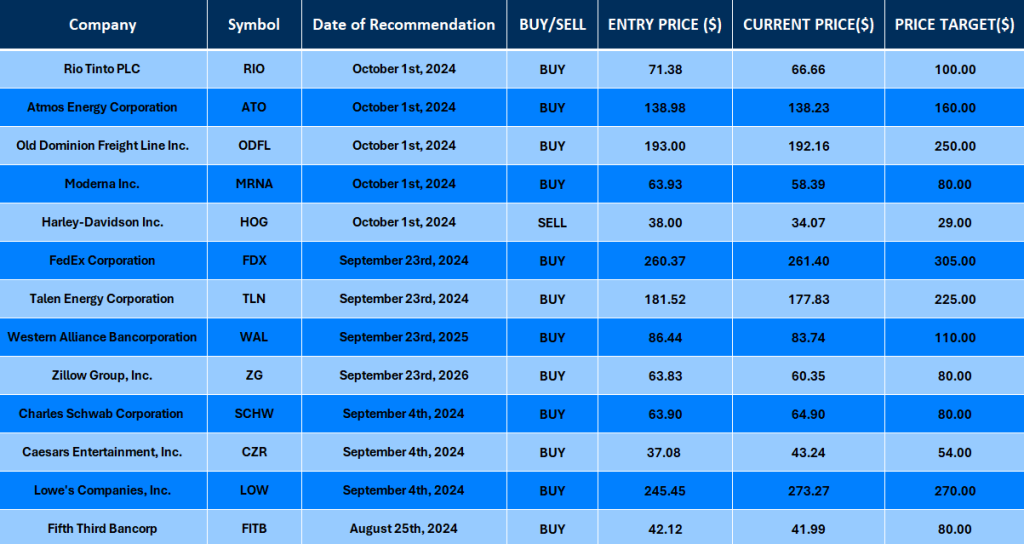
Disclaimer: This post provides financial insights for informational purposes only. It does not constitute financial advice or recommendations for investment decisions.
Daily Synopsis of the New York market close
Date Issued – 27th November 2024
Preview
Asian markets were mixed Wednesday as Wall Street hit record highs despite President-elect Trump’s tariff threats. The euro’s slide against the dollar sparks concerns over global market volatility, while OpenAI employees prepare to sell $1.5 billion in shares to SoftBank. Apple lags behind in the 2024 smartphone market rebound, with Android rivals capturing most of the growth. Electric vehicles face headwinds in the U.S. and Europe despite China’s booming EV market, driven by government subsidies and affordable models. Investors should monitor market-specific risks, government policies, and the impact of AI-driven innovations on consumer demand.
Global Markets Update: Asian Shares Mixed Amid Trade Uncertainty
Asian markets were mixed on Wednesday as Wall Street hit record highs despite President-elect Donald Trump’s tariff threats. Japan’s Nikkei fell nearly 1% due to a stronger yen, while South Korea’s Kospi dropped 0.6%, led by Samsung’s management reshuffle and a 3.3% stock decline. In contrast, Chinese markets gained, with Hong Kong’s Hang Seng up 0.5% and the Shanghai Composite rising 0.7%. Australia’s S&P/ASX 200 added 0.5%, while Taiwan and Bangkok markets posted losses.
On Wall Street, the S&P 500 rose 0.6% to a new record of 6,021.63, driven by Big Tech, with Amazon and Microsoft leading gains. However, Trump’s tariff rhetoric sparked concerns over inflation, higher consumer costs, and potential retaliatory moves from key trade partners. Meanwhile, U.S. crude oil edged up to $68.89 per barrel, and the dollar weakened slightly against the yen and euro.
Investment Insight: Market resilience in the face of trade tensions highlights investor confidence in Big Tech and U.S. economic fundamentals. However, Trump’s tariff threats could disrupt supply chains, pressure corporate profits, and exacerbate inflation risks, warranting caution for sectors reliant on global trade.
OpenAI Employees to Sell $1.5 Billion in Shares to SoftBank
OpenAI, the company behind ChatGPT, is allowing employees to sell $1.5 billion worth of shares to Japan’s SoftBank Group in a tender offer reported by CNBC. This follows OpenAI’s recent $6.6 billion funding round, which valued the Microsoft-backed firm at $157 billion. SoftBank, having already invested $500 million in October, is expanding its stake under the leadership of CEO Masayoshi Son. The tender offer, closing this week, offers current and former employees the opportunity to cash out their shares.
Investment Insight: SoftBank’s deepening investment in OpenAI underscores confidence in AI’s growth trajectory. Investors should watch for how this capital infusion supports OpenAI’s scaling efforts and how it impacts SoftBank’s broader AI strategy amid intensifying competition in the sector.
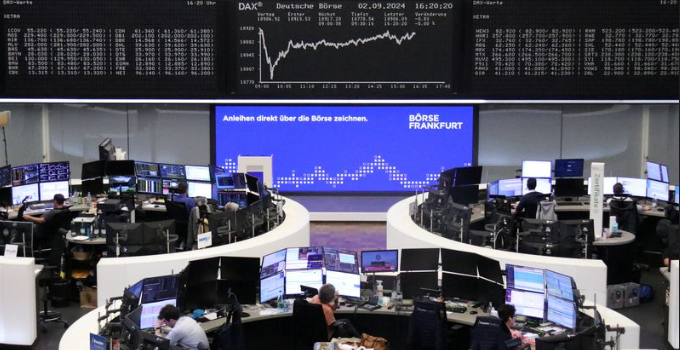
Euro’s Slide Sparks Concerns Over Global Market Volatility
The euro is down 3.8% against the dollar this month, nearing the critical $1 mark, driven by eurozone economic weakness, escalating geopolitical tensions, and proposed U.S. tariffs under President-elect Donald Trump. Analysts warn a further drop could trigger market instability, similar to the August turmoil caused by yen-dollar swings. The euro-dollar pair, the world’s most traded, impacts multinational earnings and global trade dynamics, with spillovers likely to affect currencies in trade-sensitive nations like China and South Korea. Diverging views on the euro’s future underscore market uncertainty, with some forecasting a drop to $0.99 in 2025, while others see a rebound to $1.16.
Investment Insight: Currency volatility poses risks for multinational firms and export-reliant economies. Investors should consider hedging strategies to mitigate exposure to unpredictable euro-dollar swings, while monitoring cross-asset correlations that could amplify market instability.
Apple Lags Behind in 2024 Smartphone Market Rebound
The global smartphone market grew 6.2% in 2024, shipping 1.24 billion units after years of decline, but Apple saw only a marginal 0.4% increase in iPhone shipments, according to IDC. Android-based competitors captured most of the rebound, particularly in China and emerging markets, with affordable devices driving demand. While Apple continues to dominate profits with an average selling price above $1,000, rivals like Xiaomi and Huawei are pushing AI-driven innovations and in-house chip development to gain market share. IDC notes that AI enhancements across brands have yet to spark significant consumer upgrades, as global smartphone shipments remain below pre-pandemic levels.
Investment Insight: Apple’s soft volume growth underscores its reliance on premium pricing rather than unit expansion, while Android rivals capitalize on affordability and regional strategies. Investors should monitor Apple’s efforts to penetrate lower-tier markets and the broader impact of AI-driven features on future upgrade cycles.
Market price: Apple Inc. (AAPL): USD 235.06
Electric Vehicles Face Headwinds in the U.S. and Europe Despite China Boom
While global EV sales are growing, the U.S. and Europe are struggling to match China’s momentum. Concerns over range, charging infrastructure, and high costs are slowing adoption in Western markets, where EV sales remain below climate target levels. China, in contrast, leads with 60% of global EV sales, driven by government subsidies, price cuts, and rising demand for affordable models. U.S. buyers face uncertainty over tax credits as President-elect Trump signals reduced EV support, and Europe grapples with policy rollbacks and slowed growth. Still, automakers remain committed to electrification, betting on long-term market transformation.
Investment Insight: EV adoption disparities signal market-specific risks and opportunities. Watch for Chinese automakers gaining global traction with low-cost models, while Western EV makers face challenges in scaling affordability and infrastructure. Long-term investors should monitor government policies and tax credit shifts that could influence demand trajectories.
Market Price: Tesla Inc. (TSLA): USD 338.23
Conclusion
The global markets face a mix of opportunities and challenges as trade tensions, currency volatility, and technological disruptions shape investor sentiment. While Big Tech drives U.S. market resilience, the euro’s slide and Trump’s tariff threats warrant caution. OpenAI’s share sale to SoftBank highlights the growing interest in AI, even as smartphone makers grapple with varying regional demand. The EV market’s uneven growth across China, the U.S., and Europe underscores the importance of government policies and affordability in driving adoption. As investors navigate these complex dynamics, a strategic approach to risk management and long-term value creation is crucial.
Find below some of our Buy/Sell Recommendations. Balfour Capital Group is a distinguished global boutique investment management firm with $400 million AUM and over 1000 Clients.

Disclaimer: This post provides financial insights for informational purposes only. It does not constitute financial advice or recommendations for investment decisions.
Daily Synopsis of the New York market close
Date Issued – 26th November 2024
Preview
Asian markets slipped on Tuesday amid concerns over potential tariffs on Mexico, Canada, and China, as mentioned by President-elect Donald Trump.
The Nikkei 225, S&P/ASX 200, and Kospi declined, while the Hang Seng remained flat. China is ramping up Brazilian soybean imports due to trade tensions
with the U.S. and favorable prices. Qualcomm has cooled on its potential acquisition of Intel, citing financial and regulatory challenges.
Xiaomi is developing its own mobile processor to reduce dependence on Qualcomm and MediaTek, aligning with Beijing’s push for self-reliance in technology.
Best Buy is eyeing AI products for growth and expects to report flat Q3 earnings, with AI-enabled devices potentially offsetting sluggish appliance sales.
Asian Markets Slip Amid Tariff Concerns
Asian shares mostly fell on Tuesday following President-elect Donald Trump’s comments on imposing tariffs on Mexico, Canada, and China.
Japan’s Nikkei 225 dropped 0.9%, Australia’s S&P/ASX 200 slid 0.7%, and South Korea’s Kospi declined 0.6%. Meanwhile, Hong Kong’s Hang Seng was flat,
and the Shanghai Composite edged up 0.1%. Concerns over trade policy overshadowed Wall Street’s gains on Monday, where the S&P 500 rose 0.3%,
and the Dow hit a record high. U.S. Treasury yields eased after Trump floated hedge fund manager Scott Bessent as a potential Treasury Secretary,
fueling hopes of deficit control.
Investment Insight: Heightened trade tensions could weigh on Asian markets while lower U.S. Treasury yields may benefit equities.
Investors should monitor inflation data and Fed rate policy for near-term market direction.
China Ramps Up Brazilian Soybean Imports Amid Trade Tensions
Chinese buyers are securing record volumes of Brazilian soybeans, taking advantage of low prices and abundant supply from Brazil’s expected largest-ever harvest.
Concerns over renewed trade tensions with the U.S., as President-elect Donald Trump threatens new tariffs on Chinese goods, have pushed Chinese crushers to stock up early,
even during Brazil’s off-season. Brazilian soybeans are priced $22 per ton cheaper than U.S. beans for March deliveries, according to Commodity3 data.
While the U.S. still accounts for some Chinese purchases, sales remain at their lowest for this time of year since 2018, reflecting uncertainty over trade policies.
Investment Insight: China’s pivot to Brazilian soybeans signals potential headwinds for U.S. agriculture. Investors in commodities and agribusiness should
watch for tariff developments and shifts in global supply chains.
Qualcomm Cools on Intel Takeover Amid Complexities
Qualcomm has reportedly backed away from pursuing an acquisition of Intel, citing the deal’s financial and regulatory challenges, including Intel’s $50 billion debt and its
loss-making manufacturing unit. The potential takeover, which could have been one of the largest tech deals ever, faced antitrust hurdles and operational risks. Qualcomm may
still explore acquiring parts of Intel or revisit the idea in the future. Both firms are navigating shifting industry dynamics, with Qualcomm targeting new markets and Intel
striving to regain its footing in the AI-driven chip race.
Investment Insight: The cooled takeover reflects the growing complexity of mega-deals in the semiconductor sector. Investors should focus on Qualcomm’s organic
growth initiatives and Intel’s restructuring efforts for long-term opportunities.
Market price: QCOM: USD 158.82
Xiaomi Prepares In-House Chip, Targeting Qualcomm and MediaTek
Xiaomi is developing its own mobile processor, with mass production slated for 2025, aiming to reduce dependence on Qualcomm and MediaTek. This move aligns with Beijing’s
push for self-reliance in technology amid U.S.-China tensions. While Apple and Google have succeeded in designing proprietary chips, other firms like Oppo and Nvidia have
struggled, highlighting the challenges Xiaomi faces. In-house chipmaking could boost Xiaomi’s smartphone competitiveness and support its broader ambitions in connected tech,
including electric vehicles, as the company ramps up R&D investments to $4.1 billion in 2025.
Investment Insight: Xiaomi’s chip strategy could disrupt the supply chain dynamics for Qualcomm and MediaTek. Investors should watch for advancements in Xiaomi’s
semiconductor capabilities and its potential to reshape the Android device market.
Market price: Xiaomi: HKD 27.25
Best Buy Eyes AI Products for Growth Amid Stabilizing Demand
Best Buy is set to report its Q3 results, with Wall Street expecting flat adjusted earnings of $1.29 per share on $9.63 billion in revenue, slightly below last year. Same-store
sales are forecasted to dip nearly 1%, an improvement from a 7.3% decline a year ago. Appliance sales are expected to drag, while computing and mobile phones may see gains,
supported by demand for AI-enabled products like Copilot+ PCs. Best Buy remains optimistic about AI as a growth driver, with exclusivity deals on 40% of new AI PCs and a broader
rollout anticipated in 2025.
Investment Insight: Best Buy’s focus on AI products positions it to capitalize on tech-driven consumer trends. Investors should monitor its ability to offset
sluggish appliance sales with demand for emerging AI-enabled devices.
Market price: Best Buy Co (BBY): USD 93.03
Conclusion
The newsletter highlights the complex interplay of geopolitical tensions, technological advancements, and shifting consumer trends in shaping the global market landscape. As
trade tensions persist, companies are navigating supply chain disruptions and exploring new strategies for growth. The semiconductor industry faces challenges in mega-deals,
while the rise of AI presents opportunities for firms to differentiate and capture emerging demand. Investors should closely monitor these developments, focusing on companies’
ability to adapt and innovate in an increasingly dynamic and competitive environment. By staying attuned to these key trends, investors can position themselves to capitalize on
the long-term opportunities that arise.
Upcoming Dates to Watch:
November 28, 2024: Eurozone Economic Sentiment Indicator release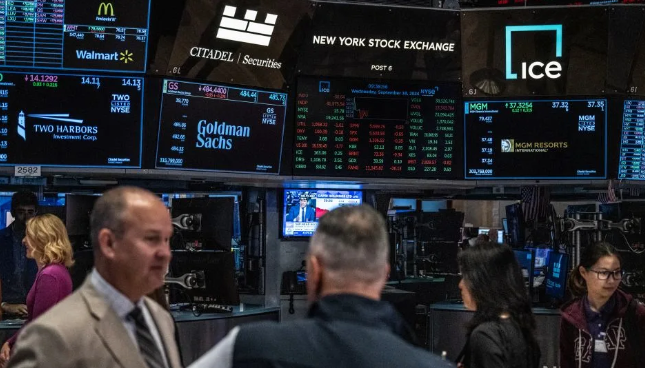
Bond Market Stabilizes as Bessent’s Treasury Nomination Calms Markets
The U.S. bond market is finding its footing after a two-month selloff, with investors stepping in at 4.5% yields.
Treasury yields, which peaked on Nov. 15, have since dipped to 4.36% following Scott Bessent’s nomination as U.S. Treasury Secretary.
Bessent, a fiscal hawk, has pledged to cut the deficit to 3% of GDP through spending cuts and economic growth, though skeptics question
the feasibility of reducing essential expenditures like Medicare and defense. His commitment to a strong dollar contrasts with Trump’s
past devaluation rhetoric, and his fiscally disciplined stance has eased market concerns, driving a 6-basis-point drop in 10-year yields.
Despite the recent rally, uncertainty over Trump’s fiscal policies, inflation, and potential tariffs—some as high as 60% on Chinese goods—keeps
volatility elevated. While some strategists see 4.25%-4.5% as fair value for 10-year Treasuries, others caution that yields could rise further
if aggressive fiscal stimulus boosts inflation. Traders are now awaiting the Fed’s preferred inflation gauge, the PCE price index, for additional clarity.
Investment Insight: Treasuries at 4.5% yields present attractive returns, but volatility may persist amid fiscal policy uncertainty.
Bessent’s nomination signals fiscal discipline, which could support bonds but pose risks for equities if aggressive deficit reduction slows growth.
Investors should monitor tariff developments, Fed-ECB rate divergence, and inflation data for guidance.
US10Y Yield: 4.328%
Meituan, Chow Tai Fook Earnings to Gauge China’s Consumer Sentiment
Earnings from Meituan and Chow Tai Fook Jewellery this week are set to provide insights into China’s struggling consumer market, weighed down
by a sluggish economic recovery, property woes, and job instability. Despite these headwinds, October retail sales saw their fastest growth in
eight months, supported by government stimulus efforts that have yet to meaningfully boost household incomes.
Meituan is expected to defy the broader slowdown, with Morgan Stanley predicting strong growth driven by consumption voucher programs and
policy support for platform economies. In contrast, Chow Tai Fook’s first-half earnings are likely to reflect weak retail sentiment and high gold prices,
with revenue projected to decline up to 22%.
Investment Insight: Meituan’s resilience highlights opportunities in platform-driven sectors benefiting from policy tailwinds,
while Chow Tai Fook underscores challenges in discretionary spending. Cautious positioning in China’s consumer sector is warranted until income growth stabilizes.
Market price: Meituan (3690.hk): HKD 161.00
Rio Tinto-Backed Lithium Startup Nears $19M Fundraising Amid Market Struggles
ElectraLith, a Rio Tinto-backed lithium technology startup, is set to close an oversubscribed A$29 million ($19 million) funding round despite weak global lithium
and venture capital markets. The company’s innovative direct lithium extraction (DLE) technology uses no water or chemicals, making it ideal for arid regions like
Chile’s Atacama Desert. ElectraLith plans to use the funds to construct its first pilot plant at Rio Tinto’s Rincon operations in Argentina within a year, followed
by two additional pilot plants. The DLE-R process, which filters brine to produce lithium hydroxide at half the cost of competitors, could revolutionize the lithium
industry by drastically shortening production timelines and addressing water scarcity challenges.
Investment Insight: ElectraLith’s cost-efficient and sustainable DLE technology positions it favorably in the growing lithium market,
which could surpass $10 billion annually within a decade. Investors should watch how the startup scales its technology and competes in the evolving EV battery supply chain.
Market Price: Rio Tinto: USD 62.50
Conclusion:
The global investment landscape is rapidly evolving, shaped by geopolitical shifts, technological innovation, and changing consumer trends.
As the U.S. navigates a political transition and China faces structural challenges, Southeast Asia grapples with the potential fallout from
Trump’s protectionist policies. Investors must remain vigilant, monitoring developments in key sectors like cryptocurrencies, bonds, consumer
goods, lithium, semiconductors, and EVs. Diversification and adaptability will be crucial in mitigating risks and seizing opportunities amidst
uncertainty. The coming weeks will provide further clarity on the future of these critical industries and the economies they support, as the world
braces for a new era of change.
Upcoming Dates to Watch:
November 28, 2024: Eurozone Economic Sentiment Indicator release
Find below some of our Buy/Sell Recommendations. Balfour Capital Group is a distinguished global boutique investment management firm with $400 million AUM and over 1000 Clients.

Disclaimer: This post provides financial insights for informational purposes only. It does not constitute financial advice or recommendations for investment decisions.
Daily Synopsis of the New York market close
Date Issued – 25th November 2024
Preview
Howard Lutnick, Trump’s Commerce Secretary nominee, is in talks with Tether for a $2 billion bitcoin lending project that could scale to tens of billions. China’s dairy boom is slowing, with revenue for top producers dropping up to 13% in H1 2024 amid overcapacity and demographic shifts. The U.S. bond market is stabilizing after Scott Bessent’s Treasury nomination, but volatility persists over fiscal policy uncertainty. Meituan and Chow Tai Fook’s earnings will gauge China’s struggling consumer market. ElectraLith, a Rio Tinto-backed lithium startup, nears a $19 million fundraise for its innovative, cost-efficient extraction technology despite weak markets. Trump’s anticipated tariffs threaten Southeast Asia’s trade growth, potentially impacting semiconductors, EVs, and clean energy sectors.
Trump Nominee Lutnick in Talks with Tether for $2B Bitcoin Lending Push
Howard Lutnick, U.S. President-elect Donald Trump’s pick for Commerce Secretary, is reportedly eyeing a $2 billion bitcoin-backed
lending project in collaboration with Tether, the issuer of the largest stablecoin. Lutnick’s firm, Cantor Fitzgerald, is in discussions
to leverage Tether’s financial support for the initiative, which could scale to tens of billions of dollars. Tether, which already works
closely with Cantor to manage billions in U.S. Treasuries backing its stablecoin, confirmed its interest in exploring new investment
opportunities. This move underscores Lutnick’s advocacy for cryptocurrency adoption as he prepares to lead the Commerce Department.
Investment Insight: A partnership between a major financial firm and Tether signals growing institutional interest
in crypto-backed lending, but regulatory scrutiny and market volatility remain key risks for investors.
Trump’s Tariff Policies Threaten Southeast Asia’s Trade Growth
Donald Trump’s anticipated return to the White House raises concerns for Southeast Asian economies like Malaysia, Thailand, and Vietnam,
which previously benefited from his trade war with China. During Trump’s first term, Chinese firms relocated supply chains to the region,
boosting investment and jobs. However, the new administration’s focus on curbing “third-country workarounds” could result in tariffs as
high as 20% on imports from nations with large trade surpluses, particularly in strategic sectors like semiconductors and electric vehicles.
Steve Alain Lawrence, CIO of Balfour Capital, suggests that affected Asian nations could retaliate with tariffs on U.S. goods or impose
non-tariff barriers, further complicating trade dynamics. Analysts warn of potential export declines, retreating foreign investment, and
strained manufacturing supply chains, while regional governments explore free trade agreements and alliances to mitigate risks.
Investment Insight: Southeast Asia’s trade-reliant economies may face headwinds as Trump’s protectionist policies target
supply chain reconfigurations. Investors should monitor impacts on semiconductors, EVs, and clean energy sectors while considering
diversification into resilient industries and regions.
China’s Dairy Boom Nears Its End, S&P Warns
China’s decades-long dairy expansion is slowing, with revenue for the top three producers dropping up to 13% in the first half of 2024,
according to S&P Global Ratings. A shrinking population and sluggish economy are expected to halve annual growth in dairy sales volumes
to 2%-3% over the next 20 years. Overcapacity and a 40% rise in domestic milk production over the past decade have further exacerbated
pressure on the sector. While the government considers limiting EU imports to ease strain on farmers, S&P predicts the aging population
may stabilize demand in 10 to 15 years.
Investment Insight: China’s dairy industry faces structural challenges, including demographic shifts and overproduction.
Investors should anticipate volatile earnings and focus on companies adapting to long-term trends like aging-related consumption.
Bond Market Stabilizes as Bessent’s Treasury Nomination Calms Markets
The U.S. bond market is finding its footing after a two-month selloff, with investors stepping in at 4.5% yields.
Treasury yields, which peaked on Nov. 15, have since dipped to 4.36% following Scott Bessent’s nomination as U.S. Treasury Secretary.
Bessent, a fiscal hawk, has pledged to cut the deficit to 3% of GDP through spending cuts and economic growth, though skeptics question
the feasibility of reducing essential expenditures like Medicare and defense. His commitment to a strong dollar contrasts with Trump’s
past devaluation rhetoric, and his fiscally disciplined stance has eased market concerns, driving a 6-basis-point drop in 10-year yields.
Despite the recent rally, uncertainty over Trump’s fiscal policies, inflation, and potential tariffs—some as high as 60% on Chinese goods—keeps
volatility elevated. While some strategists see 4.25%-4.5% as fair value for 10-year Treasuries, others caution that yields could rise further
if aggressive fiscal stimulus boosts inflation. Traders are now awaiting the Fed’s preferred inflation gauge, the PCE price index, for additional clarity.
Investment Insight: Treasuries at 4.5% yields present attractive returns, but volatility may persist amid fiscal policy uncertainty.
Bessent’s nomination signals fiscal discipline, which could support bonds but pose risks for equities if aggressive deficit reduction slows growth.
Investors should monitor tariff developments, Fed-ECB rate divergence, and inflation data for guidance.
US10Y Yield: 4.328%
Meituan, Chow Tai Fook Earnings to Gauge China’s Consumer Sentiment
Earnings from Meituan and Chow Tai Fook Jewellery this week are set to provide insights into China’s struggling consumer market, weighed down
by a sluggish economic recovery, property woes, and job instability. Despite these headwinds, October retail sales saw their fastest growth in
eight months, supported by government stimulus efforts that have yet to meaningfully boost household incomes.
Meituan is expected to defy the broader slowdown, with Morgan Stanley predicting strong growth driven by consumption voucher programs and
policy support for platform economies. In contrast, Chow Tai Fook’s first-half earnings are likely to reflect weak retail sentiment and high gold prices,
with revenue projected to decline up to 22%.
Investment Insight: Meituan’s resilience highlights opportunities in platform-driven sectors benefiting from policy tailwinds,
while Chow Tai Fook underscores challenges in discretionary spending. Cautious positioning in China’s consumer sector is warranted until income growth stabilizes.
Market price: Meituan (3690.hk): HKD 161.00
Rio Tinto-Backed Lithium Startup Nears $19M Fundraising Amid Market Struggles
ElectraLith, a Rio Tinto-backed lithium technology startup, is set to close an oversubscribed A$29 million ($19 million) funding round despite weak global lithium
and venture capital markets. The company’s innovative direct lithium extraction (DLE) technology uses no water or chemicals, making it ideal for arid regions like
Chile’s Atacama Desert. ElectraLith plans to use the funds to construct its first pilot plant at Rio Tinto’s Rincon operations in Argentina within a year, followed
by two additional pilot plants. The DLE-R process, which filters brine to produce lithium hydroxide at half the cost of competitors, could revolutionize the lithium
industry by drastically shortening production timelines and addressing water scarcity challenges.
Investment Insight: ElectraLith’s cost-efficient and sustainable DLE technology positions it favorably in the growing lithium market,
which could surpass $10 billion annually within a decade. Investors should watch how the startup scales its technology and competes in the evolving EV battery supply chain.
Market Price: Rio Tinto: USD 62.50
Conclusion:
The global investment landscape is rapidly evolving, shaped by geopolitical shifts, technological innovation, and changing consumer trends.
As the U.S. navigates a political transition and China faces structural challenges, Southeast Asia grapples with the potential fallout from
Trump’s protectionist policies. Investors must remain vigilant, monitoring developments in key sectors like cryptocurrencies, bonds, consumer
goods, lithium, semiconductors, and EVs. Diversification and adaptability will be crucial in mitigating risks and seizing opportunities amidst
uncertainty. The coming weeks will provide further clarity on the future of these critical industries and the economies they support, as the world
braces for a new era of change.
Upcoming Dates to Watch:
November 28, 2024: Eurozone Economic Sentiment Indicator release
Find below some of our Buy/Sell Recommendations. Balfour Capital Group is a distinguished global boutique investment management firm with $400 million AUM and over 1000 Clients.

Disclaimer: This post provides financial insights for informational purposes only. It does not constitute financial advice or recommendations for investment decisions.
Daily Synopsis of the New York market close
Date Issued – 22nd November 2024
Asian Stocks Rise on Nvidia Earnings and Bitcoin Rally
Asian stocks tracked Wall Street gains on Friday, buoyed by Nvidia’s strong earnings and a surge in bitcoin prices.
Key regional benchmarks, including Japan’s Nikkei 225 (+1%) and South Korea’s Kospi (+1.2%), advanced, while Hong Kong’s Hang Seng
and China’s Shanghai Composite saw slight declines. Nvidia’s robust demand for AI chips propelled U.S. markets, with the S&P 500
rising 0.5%, while bitcoin briefly surpassed $99,000 before retreating. Crypto markets rallied further on news of SEC Chair
Gary Gensler’s pending resignation, fueling optimism for a lighter regulatory stance.
Investment Insight: Tech-driven earnings and crypto momentum are lifting markets, but volatility remains high.
Investors should balance exposure to high-growth sectors with defensive assets, as geopolitical and inflation risks persist.
Adani Group Faces Downgrade Amid U.S. Indictment Fallout
S&P Global Ratings has downgraded its outlook on three Adani Group entities from stable to negative, citing concerns over funding
access following U.S. bribery charges against founder Gautam Adani. The indictment accuses Adani and seven others of a $265 million
scheme to bribe Indian officials for power-supply deals. Adani Group has dismissed the allegations as baseless and pledged legal
recourse. S&P warned that the charges could erode investor confidence, raise funding costs, and disrupt the group’s ambitious growth
plans, given its reliance on equity and debt markets. Adani Group stocks and bonds extended losses for a second consecutive session.
Investment Insight: The indictment highlights reputational and credit risks in emerging markets.
Investors should monitor funding access and refinancing challenges for highly leveraged firms like Adani Group, as these could signal
broader market vulnerabilities.
Market price: Adani Enterprises Ltd: INR 2264.65
Market Update
BOJ Likely to Raise Rates in December as Yen Weakens, Trump Victory Fuels Inflation Expectations
A Reuters poll suggests the Bank of Japan (BOJ) will hike interest rates at its December meeting, with 56% of economists
predicting a raise to 0.50% amid yen depreciation and a strengthening economy. The poll also notes that Donald Trump’s election
victory could push the BOJ to act further, as inflationary policies in the U.S. might stoke global inflationary pressures. BOJ
Governor Kazuo Ueda highlighted the risks of keeping rates too low as Japan moves toward sustained wage-driven inflation. By
March 2025, 90% of analysts anticipate rates will reach 0.50%, with some forecasting further hikes to 0.75% in early 2025.
Investment Insight: Japan’s tightening monetary stance signals a shift from ultra-loose policies, with
potential implications for yen strength and export competitiveness. Investors should watch for opportunities in Japanese financials
and exporters sensitive to currency movements.
Gold Soars as War Risks Intensify, Euro Slumps
Gold surged 4.5% this week, its largest weekly gain in eight months, as geopolitical tensions escalated. Russia fired a hypersonic
missile at Ukraine and lowered its nuclear weapons threshold, triggering safe-haven demand. Meanwhile, shares of Hunan Gold Corp.
surged by their 10% limit for two consecutive days following the discovery of significant gold resources in China’s Hunan province.
The find, estimated at 300 tons with deeper potential reserves, highlights China’s role as the world’s largest gold consumer.
Elsewhere, the euro fell to a 13-month low amid Europe’s economic and political challenges, Brent crude climbed 4.5% on supply concerns,
and Bitcoin hovered near $100,000, adding to market volatility.
Investment Insight: Heightened geopolitical risks and new discoveries are boosting gold’s appeal.
Investors should consider gold mining stocks and ETFs as a hedge against uncertainty, while remaining cautious on euro-denominated
assets amid Europe’s fragility.
Three BofA India Bankers Exit Amid Stock Offering Probe
Three senior Bank of America dealmakers in India, including Debasish Purohit, co-head of investment banking, have left amid an
internal probe into allegations of misconduct tied to stock offerings. Transactions under scrutiny include a $178 million share
sale by Aditya Birla Sun Life Asset Management in March. Indian regulators began investigating the matter in September, raising
questions about compliance practices. Bank of America has yet to comment or name replacements for the departing bankers.
Investment Insight: The probe underscores regulatory risks in emerging markets. Investors should monitor
compliance issues tied to capital markets activity, particularly in regions with heightened regulatory scrutiny, as such risks could
impact financial institutions’ reputations and operations.
Conclusion:
This week’s market developments underscore the complex interplay of geopolitical risks, regulatory challenges, and shifting
economic landscapes. As investors navigate these uncertainties, a balanced approach that combines growth-oriented investments
with defensive strategies appears prudent. Opportunities may arise in sectors like technology and gold mining, while caution
is warranted in regions facing heightened regulatory scrutiny or political instability. Ultimately, staying attuned to global
events, monitoring key risk factors, and maintaining a diversified portfolio will be essential for weathering the volatility
ahead and positioning for long-term success in an increasingly dynamic investment environment.
Upcoming Dates to Watch:
November 22, 2024: Japan National CPI release
November 28, 2024: Eurozone Economic Sentiment Indicator release
Find below some of our Buy/Sell Recommendations. Balfour Capital Group is a distinguished global boutique investment management firm with $400 million AUM and over 1000 Clients.

Disclaimer: This post provides financial insights for informational purposes only. It does not constitute financial advice or recommendations for investment decisions.
Daily Synopsis of the New York market close
Date Issued – 21st November 2024
China’s Role in Preventing Nuclear Escalation, Macron Highlights at G20
At the G20 summit in Rio de Janeiro, French President Emmanuel Macron urged China to play a decisive role in averting nuclear escalation as tensions rise globally. Speaking at the summit, Macron called on Chinese President Xi Jinping to pressure Russian President Vladimir Putin to end the war in Ukraine. This follows Ukraine’s first use of U.S.-made ATACMS missiles to strike deep into Russian territory, prompting Putin to lower Russia’s nuclear strike threshold. Macron also pointed to North Korea’s involvement in the conflict, which raises the stakes for China to advocate for de-escalation.
Putin’s updated nuclear doctrine now considers attacks using advanced Western weapons, like ATACMS, as potential triggers for nuclear retaliation, heightening concerns over the conflict’s trajectory. Macron, meanwhile, announced plans to host U.S. President-elect Donald Trump and billionaire Elon Musk at an AI summit in France in February.
Investment Insight: Rising geopolitical tensions and nuclear risks could increase market volatility, particularly in commodities and defense sectors. Investors should closely monitor China’s diplomatic role and its potential impact on trade and global supply chains.
Nvidia Surpasses Expectations, Fuels the “Age of AI”
Nvidia reported Q3 earnings that exceeded Wall Street projections, driven by surging demand for its AI chips. The company posted earnings per share (EPS) of $0.81 on $35.1 billion in revenue, outperforming analyst expectations of $0.74 EPS and $33.2 billion in revenue. Nvidia’s Data Center segment, accounting for the bulk of its income, saw a 112% year-over-year jump to $30.8 billion. Gaming revenue also beat forecasts, reaching $3.3 billion.
CEO Jensen Huang declared the “age of AI is in full steam,” as the firm anticipates Q4 revenue of $37.5 billion, slightly ahead of expectations. However, Nvidia faces looming challenges, including potential global tariffs under President-elect Donald Trump, which could impact its Taiwan-manufactured chips and squeeze profit margins.
Investment Insight: Nvidia’s dominance in AI positions it as a long-term leader, but geopolitical risks and supply constraints could pressure margins. Investors should watch U.S.-China trade policies and global chip supply trends closely.
Market price: Nvidia Corp (NVDA): USD 145.89
Adani Group Loses $30 Billion in Market Value After U.S. Indictments
Shares of India’s Adani Group plunged on Thursday, wiping out $28 billion in market value following U.S. criminal and civil charges against Chairman Gautam Adani and top executives. The indictments allege $265 million in bribes to Indian officials for contracts tied to solar power projects. Flagship Adani Enterprises dropped 23%, with other group companies like Adani Ports, Adani Green, and Adani Power falling between 20% and 90%.
The fallout extends beyond equities, as Adani’s dollar bonds also saw sharp declines, marking the biggest drop since the group faced allegations of stock manipulation by Hindenburg Research in early 2023. Analysts warn this could damage Adani’s credibility, deter investors, and raise borrowing costs.
Investment Insight: Adani’s legal troubles may undermine investor confidence in emerging-market conglomerates with high debt exposure. Watch for increased risk premiums on Indian corporate bonds and ripple effects on global ESG-focused investments.
Market price: Adani Enterprises Ltd: INR 2298.45

Market Insights
Justice Department Pushes for Google Chrome Sale to Break Monopoly
The Justice Department and several U.S. states have proposed major structural changes to Alphabet Inc.’s Google, including the forced sale of its Chrome browser, to curb the tech giant’s dominance in online search. The move follows a landmark antitrust ruling that Google illegally monopolized search and search advertising. Regulators argue Chrome reinforces Google’s dominance by serving as a gateway to the internet for many users.
Proposals also include licensing Google’s search data to rivals, prohibiting exclusive deals with device makers, and offering users a “choice screen” for selecting search engines. The government further seeks to curtail Google’s AI-related investments to prevent it from monopolizing emerging search technologies. A final ruling is expected after hearings in 2024.
Investment Insight: A forced divestiture of Chrome could reshape the competitive landscape for browsers and search engines, opening opportunities for rivals like Microsoft and AI-driven platforms. Investors should monitor regulatory risks for big tech stocks and potential shifts in the digital advertising market.
Market Price: Alphabet Inc (GOOG): USD 177.33
Trump’s Trade and Commerce Nominee Draws Attention for China Ties
President-elect Donald Trump’s nomination of Howard Lutnick to lead U.S. trade and commerce agencies has sparked debate over his extensive financial ties to China. Lutnick’s firms, including BGC Group and Cantor Fitzgerald, have partnered with Chinese state-owned entities and facilitated Chinese companies’ access to U.S. capital markets, such as underwriting IPOs. Supporters highlight Lutnick’s deep experience in global finance and trade as valuable assets in navigating complex U.S.-China economic relations.
Critics, however, point to potential conflicts of interest stemming from BGC’s joint venture with China Credit Trust, a state-owned firm, and Cantor Fitzgerald’s past deals with Chinese firms. Lawmakers and ethics experts have raised concerns about his impartiality in making key decisions on tariffs, export controls, and trade policy. Despite this, proponents argue that Lutnick’s financial expertise and global network could bolster U.S. competitiveness in trade negotiations.
Investment Insight: Lutnick’s nomination could lead to a pragmatic approach to U.S.-China trade, balancing tougher enforcement with opportunities to strengthen U.S. business interests abroad. Investors should monitor policy shifts in tariffs, export controls, and capital market access, particularly in tech, finance, and manufacturing sectors.
Kioxia Aims for $4.8 Billion IPO in Tokyo to Boost Memory Sector Presence
Bain Capital-backed Kioxia Holdings plans to list on the Tokyo Stock Exchange in mid-December with a valuation of ¥750 billion ($4.8 billion). The IPO, benefiting from a faster approval process, is set to provide much-needed funds for the NAND memory maker to expand capacity and close the gap with industry leader Samsung Electronics. The listing comes after years of delays, during which Kioxia weathered six consecutive quarters of operating losses amid a prolonged slump in NAND prices.
The IPO is expected to help Kioxia capitalize on a recovery in chip prices, though its reliance on a single memory type leaves it more exposed to market volatility than rivals like Samsung and SK Hynix. Bain Capital holds a 56% stake in Kioxia, with Toshiba and Hoya owning 41% and 3%, respectively.
Investment Insight: Kioxia’s IPO reflects renewed optimism in the memory chip market. A successful debut could signal a recovery for the sector, but investors should weigh risks tied to Kioxia’s narrow product focus and competition from dominant players like Samsung.
Flour Millers Face Wheat Supply Crunch as Farmers Hold Out for Better Prices
Flour millers across Asia and the Middle East are grappling with tightening wheat supplies as farmers in key exporting nations, including the U.S., Australia, and Black Sea regions, hold back grain, hoping for higher prices. With global wheat prices near four-year lows and projected stockpiles at a nine-year low, millers are reducing their inventories, leaving them exposed to potential price surges. Current stock coverage is down to 45 days in some regions, far below the typical three-to-four-month buffer.
Despite strong harvests in Australia and Argentina, low farmer sales and high interest rates are limiting millers’ ability to replenish stocks. Meanwhile, Russia, the world’s largest wheat exporter, faces supply constraints with an upcoming grain export quota expected to significantly reduce available stock.
Investment Insight: Global wheat markets are vulnerable to weather risks and geopolitical disruptions, which could trigger sharp price rallies. Investors in agricultural commodities should monitor supply bottlenecks and stockpile trends, particularly in the U.S., Black Sea, and Australia.
Conclusion
This week’s newsletter highlights the complex geopolitical landscape and its potential impact on global markets. From rising nuclear tensions to high-stakes trade nominations and supply chain disruptions, investors must navigate a world of uncertainty. However, amidst these challenges lie opportunities in sectors such as AI, memory chips, and agricultural commodities. To succeed, investors should closely monitor policy shifts, regulatory risks, and market trends while maintaining a diversified portfolio. By staying informed and adaptable, savvy investors can position themselves to weather volatility and capitalize on the unique opportunities presented by these turbulent times.
Upcoming Dates to Watch
- November 22, 2024: Japan National CPI release
- November 28, 2024: Eurozone Economic Sentiment Indicator release
Find below some of our Buy/Sell Recommendations. Balfour Capital Group is a distinguished global boutique investment management firm with $400 million AUM and over 1000 Clients.

Disclaimer: This post provides financial insights for informational purposes only. It does not constitute financial advice or recommendations for investment decisions.
Daily Synopsis of the New York market close
Date Issued – 20th November 2024
Stocks Drift as Investors Await Nvidia Earnings
Asian stocks dipped and European futures pointed to a muted session as traders awaited Nvidia’s earnings report. The MSCI Asia Pacific Index fell 0.5%, while Euro Stoxx 50 futures rose 0.4%. US stock futures also inched higher after Wall Street closed with modest gains on Tuesday, despite escalating tensions in Ukraine. Nvidia, which has been a key driver of market sentiment due to its leadership in AI hardware, surged 4.9% ahead of its earnings release, with investors expecting another strong quarter.
In other developments, Tokyo Gas shares soared after Elliott Investment Management disclosed a major stake, and Seven & I shares rallied on rumors of a potential privatization deal. Meanwhile, US 10-year Treasury yields remained steady, and Bitcoin hit another record high, buoyed by the growing embrace of digital assets under President-elect Donald Trump. Gold also continued its rise amid geopolitical tensions.
Investment Insight: Nvidia’s earnings report could significantly influence tech sector momentum heading into year-end. A strong performance may sustain the current rally, but any disappointment could trigger a broader market pullback. Investors should monitor Nvidia’s results closely, as they will likely set the tone for the final weeks of 2024.
Market price: NVDA: $147.01
Hong Kong Property Tycoons Back IPO Market Revival
Hong Kong’s property magnates are returning to the IPO scene, fueling optimism for a revival in the city’s listing market. Billionaire Robert Ng’s Sino Land and a vehicle tied to Henry Cheng’s New World Development have invested heavily in the $793 million IPO of SF Holding, China’s leading courier service. This marks the first time in years that local tycoons have participated as cornerstone investors, signaling renewed confidence in Hong Kong’s financial markets. After a slow 2023, IPO fundraising has surged 92% this year to $9.1 billion, with SF Holding eyeing one of the largest offerings of 2024.
Investment Insight: The involvement of Hong Kong’s property tycoons in IPOs signals confidence in the city’s market recovery. Investors should watch SF Holding’s performance closely, as it may set the tone for upcoming listings and broader sentiment towards Chinese issuers.
US LNG Exports to China Surge, But Trade Tensions Loom
US liquefied natural gas (LNG) exports to China have soared this year, with imports rising 63% in the first 10 months of 2024 compared to 2023. This jump has moved the US to fifth place among China’s LNG suppliers. However, the surge could be short-lived as the incoming Trump administration may reignite trade tensions with Beijing. If a 60% tariff on Chinese goods is imposed, retaliatory measures could target US gas exports, echoing the last trade war when US LNG shipments to China plummeted in 2019.
Investment Insight: While US LNG exports to China are booming, geopolitical risks could disrupt future growth. Investors in US energy and LNG sectors should remain cautious, as a renewed trade war could significantly impact demand from one of the world’s largest gas importers.
Volkswagen Faces Rising Labor Costs Amid Union Negotiations
Volkswagen is grappling with high labor costs as it prepares for wage negotiations with unions representing 120,000 German workers. Data shows VW spends a higher percentage of revenue on labor than competitors like BMW, Mercedes-Benz, and Stellantis. While VW’s global labor cost ratio fell to 15.4% in 2023, it still exceeds the 9.5%-11% seen at rival firms. With unions demanding a 7% pay hike and VW proposing a 10% cut, tensions are rising. High wages, compounded by Germany’s costly labor market, are straining the company’s competitiveness, particularly as cheaper Chinese models flood the market.
Investment Insight: Volkswagen’s rising labor costs, especially in Germany, could pressure its margins and profitability. Investors should closely monitor the outcome of wage negotiations, as significant cost reductions may be necessary to maintain market leadership and compete with lower-cost rivals.
Market Price: Volkswagen Group (VOW3): EUR 82.98
Hon Hai Secures $1.1 Billion Loan Amid AI Server Demand Surge
Taiwan’s Hon Hai Precision Industry, better known as Foxconn, has secured a $1.1 billion three-year loan from 17 banks, including both local and international lenders. The funds, designated for general corporate purposes, come as the company rides a wave of booming demand for AI servers. Foxconn, which partners with Nvidia, is forecasting continued growth in its AI server business into 2025, with cloud products expected to rival its mobile phone sales. The company is also constructing the world’s largest Nvidia server assembly plant in Mexico.
Investment Insight: Hon Hai’s significant investment in AI infrastructure underscores the sector’s growth potential. Investors should monitor the AI server market closely, as it could become a key revenue driver for both Foxconn and Nvidia, potentially sustaining their stock momentum into 2025.
Market price: Hon Hai 2317.TW: TWD 206.00
Conclusion
As 2024 draws to a close, investors are keeping a close eye on key developments across various sectors. Nvidia’s earnings report will likely set the tone for the tech sector, while Hong Kong’s IPO market revival hinges on the performance of SF Holding. Geopolitical risks threaten to disrupt US LNG exports to China, and the AI server market’s growth potential is underscored by Hon Hai’s significant investments. Meanwhile, Volkswagen’s rising labor costs in Germany could strain its competitiveness and profitability. As the year concludes, these crucial factors will shape investment strategies and market sentiment heading into 2025.
Upcoming Dates to Watch
- November 20, 2024: U.S. Federal Open Market Committee (FOMC) meeting minutes
- November 22, 2024: Japan National CPI release
- November 28, 2024: Eurozone Economic Sentiment Indicator release
Find below some of our Buy/Sell Recommendations. Balfour Capital Group is a distinguished global boutique investment management firm with $400 million AUM and over 1000 Clients.

Disclaimer: This post provides financial insights for informational purposes only. It does not constitute financial advice or recommendations for investment decisions.
Daily Synopsis of the New York market close
Date Issued – 19th November 2024
Goldman Sachs Joins Morgan Stanley in S&P 500 Target of 6,500 by 2025
Goldman Sachs has set a year-end 2025 target of 6,500 for the S&P 500, projecting a 10.3% increase from its recent close of 5,893.62. This forecast aligns with Morgan Stanley’s outlook, which anticipates strong U.S. economic growth and robust corporate earnings. Both firms expect the Federal Reserve to cut interest rates, further supporting business expansion.
Goldman highlighted the ‘Magnificent 7’—Amazon, Apple, Alphabet, Meta, Microsoft, Nvidia, and Tesla—as key drivers of growth, though their outperformance margin will narrow to the lowest level in seven years. The bank also foresees a potential 11% growth in corporate earnings and 2.5% real GDP growth by 2025, while cautioning about risks from higher bond yields and tariff policies under the newly re-elected Trump administration.
Investment Insight: Goldman’s outlook underscores the importance of balancing exposure between tech giants and broader market opportunities. Investors should be mindful of macroeconomic risks, including potential tariff impacts and bond yield fluctuations.
Market price: S&P 500: $5,893.62
Chinese Courier SF Holding Aims to Raise $793 Million in Hong Kong Listing
SF Holding, China’s largest express-delivery company, is looking to raise up to HK$6.2 billion ($793 million) through a Hong Kong listing, offering 170 million shares at HK$32.30 to HK$36.30 each. The share sale, expected to close on November 27, offers a roughly 29% discount to its Shenzhen-listed stock. SF Holding has already secured $205 million from cornerstone investors, including Xiaomi and Oaktree Capital.
Despite a slight recovery in Chinese investor sentiment after government stimulus measures, volatility persists amid ongoing U.S.-China trade tensions. Hong Kong IPOs have raised over $9 billion in 2024, yet the total remains below historical highs.
Investment Insight: SF Holding’s planned listing offers exposure to China’s logistics sector but comes with risks tied to trade tensions and market volatility. Investors should weigh the discounted pricing against the broader economic uncertainties.
Market price: S.F. Holding Co Ltd.: CNY 42.26
China Restricts Local Funds from Buying LGFV Bonds via Hong Kong Link
China has directed domestic investors to halt purchases of offshore yuan bonds issued by local government financing vehicles (LGFVs) through the Bond Connect program with Hong Kong, according to sources. The move comes as part of Beijing’s efforts to mitigate risks from the heavily indebted LGFV sector, which borrowed extensively during past infrastructure booms. This follows a recent $1.4 trillion debt swap initiative aimed at reducing “hidden” local government debt.
Local governments, hit by falling land sale revenues due to China’s property market crisis, are grappling with debt servicing challenges. LGFVs have been major issuers in the dim sum bond market, which has seen record issuance in 2024. The average coupon for LGFV dim sum bonds this year is 5.8%, significantly higher than their onshore equivalents.
Investment Insight: China’s tightening of restrictions on LGFV debt underscores the growing concerns about financial stability. Investors should be cautious of elevated yields in this sector, as further regulatory interventions may lead to increased volatility.
Delivery Hero Aims to Raise $1.5 Billion from Talabat’s Dubai IPO
Delivery Hero SE is targeting up to $1.5 billion through an IPO of its Middle Eastern unit, Talabat, in what could be one of 2024’s largest deals in the region. The company is offering a 15% stake, or 3.49 billion shares, at a price range of 1.50 to 1.60 dirhams each. The offering values Talabat at up to $10.2 billion, just below Delivery Hero’s $11 billion market cap. Major investors, including the UAE Strategic Investment Fund and Abu Dhabi Pension Fund, will contribute $250 million as cornerstone investors.
Investment Insight: Talabat’s IPO offers exposure to a high-growth, profitable food delivery platform in the Middle East. However, with recent IPOs in the region underperforming initially, investors should weigh the short-term market sentiment against long-term growth potential.
Conclusion:
In conclusion, the newsletter highlights a mix of optimism and caution in global markets. While Goldman Sachs and Morgan Stanley project strong U.S. economic growth, risks loom from potential tariff policies and bond yield fluctuations. In China, SF Holding’s IPO and restrictions on LGFV bond purchases underscore the complex interplay between market opportunities and regulatory challenges. Delivery Hero’s Talabat IPO offers a bright spot in the Middle East, while Asian markets remain sensitive to global trade tensions and China’s economic uncertainties. As investors navigate these dynamics, a balanced approach that considers both short-term sentiment and long-term potential is crucial.
Upcoming Dates to Watch:
- November 20, 2024: U.S. Federal Open Market Committee (FOMC) meeting minutes
- November 22, 2024: Japan National CPI release
- November 28, 2024: Eurozone Economic Sentiment Indicator release
Find below some of our Buy/Sell Recommendations. Balfour Capital Group is a distinguished global boutique investment management firm with $400 million AUM and over 1000 Clients.

Disclaimer: This post provides financial insights for informational purposes only. It does not constitute financial advice or recommendations for investment decisions.
Daily Synopsis of the New York market close
Date Issued – 18th November 2024
Preview
Global markets experienced mixed performance as U.S. stocks slumped, with the S&P 500 and Nasdaq falling sharply due to concerns over President-elect Donald Trump’s policies. Asian shares saw varying results, with Japan’s Nikkei 225 dropping 1% while South Korea’s Kospi surged 2%. Indian bonds faced the largest outflows since their inclusion in JPMorgan’s emerging-market bond index, driven by rising U.S. Treasury yields. Samsung Electronics shares soared up to 7.5% following a surprise $7.2 billion buyback plan. Options traders are unwinding bullish bets on U.S. stocks amid concerns over slower interest rate cuts. Goldman Sachs predicts gold will hit a record $3,000 an ounce by December 2025, citing central bank buying and expected U.S. interest rate cuts. Investors are advised to consider defensive positions, diversify portfolios across global regions, and increase exposure to precious metals to hedge against potential risks.
Global Markets Struggle Amid U.S. Stock Slump
Asian shares kicked off the week with mixed results following Wall Street’s worst loss since Election Day. Japan’s Nikkei 225 dropped 1%, pressured by a stronger yen after Bank of Japan Governor Kazuo Ueda signaled continued interest rate hikes. South Korea’s Kospi surged 2%, driven by a 6% jump in Samsung Electronics after announcing a share buyback plan. Chinese markets also advanced, buoyed by retail data suggesting government stimulus is aiding economic recovery. Meanwhile, U.S. stocks saw sharp declines, with the S&P 500 down 1.3% and the Nasdaq falling 2.2%, as concerns over President-elect Donald Trump’s policy impact on vaccine manufacturers and biotech firms weighed on sentiment.
Investment Insight: Market volatility remains high, particularly in sectors sensitive to political developments. Investors should consider defensive positions and diversify portfolios across global regions to hedge against potential U.S. policy risks.
Market price: Nikkei 225: JPY 38,220.50
Indian Bonds Hit by Largest Outflows Since Index Inclusion
Foreign investors are pulling out of Indian bonds at the fastest rate since June, driven by rising U.S. Treasury yields that have reduced the relative appeal of Indian fixed-income securities. Data from the Clearing Corporation of India shows a net sale of 49.6 billion rupees ($588 million) of Fully Accessible Route bonds last week, marking the largest weekly outflow since their inclusion in JPMorgan’s emerging-market bond index. The shrinking yield gap between U.S. and Indian bonds, along with the Reserve Bank of India’s cautious stance on rate cuts, has further pressured Indian debt markets. However, upcoming index changes may mitigate the selloff, as JPMorgan plans to boost India’s bond weighting by the end of November.
Investment Insight: The narrowing yield spread between Indian and U.S. bonds signals a more challenging environment for Indian fixed-income assets. Investors should assess the impact of global interest rate trends and consider rotating into markets with more favorable yield differentials.
Market price: Nifty 50: INR 23,490.50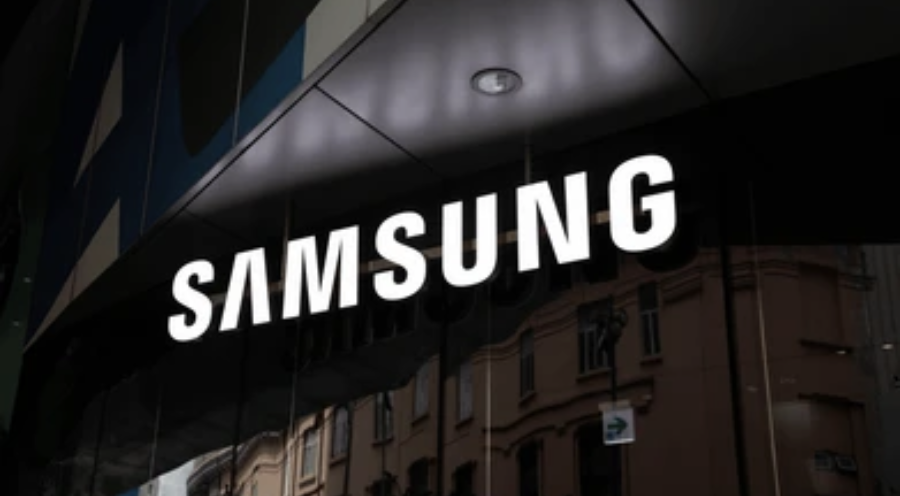
Economic Insights
Lenovo’s AI Momentum Drives Earnings and Outlook
Lenovo reported a strong earnings boost, with net profit for the September quarter rising 44% year-over-year to $359 million, surpassing analyst expectations. Revenue increased by 24% to $17.85 billion, driven by investments in AI and growth in PCs and smartphones. The company’s AI-enabled PCs have fueled a global market recovery, with the intelligent-devices segment showing a 17% revenue gain. Lenovo is diversifying beyond PCs, with non-PC revenue now comprising 46% of total sales. Despite robust growth in its infrastructure solutions, profitability remains a challenge due to low-margin projects aimed at capturing AI server market share.
Investment Insight: Lenovo’s focus on AI and diversification suggests potential for long-term growth. However, the path to profitability in emerging segments may be extended, requiring careful investor consideration.Market price: Lenovo Group Ltd. (0992.HK): HKD 9.17
New Alumina Supplies in 2025 Set to Curb Price Surge
New alumina capacity coming online in 2025 is expected to ease supply constraints and potentially end the record price rally. Alumina prices surged 70% this year due to supply disruptions in Guinea, Brazil, and Australia. However, new refineries in Indonesia, India, and China are set to boost production. China’s alumina exports rose 33% this year, and analysts predict a market surplus in 2025, leading to lower prices. UBS forecasts a drop to 3,600 yuan per ton, while Antaike estimates 4,000 yuan. A potential supply glut looms, especially if demand growth slows.
Investment Insight: Investors should prepare for potential price declines in alumina as new supply enters the market. Watch for shifts in demand and production rates that could impact profitability in the sector.Market price: Alumina: $411.16
Malaysia’s Economy Maintains Strong Growth Momentum in Q3 2024
Malaysia’s economy expanded by 5.3% year-on-year in the third quarter of 2024, driven by a surge in investments and increased domestic spending. The growth matched the advance estimate and Bloomberg’s median forecast. Sequentially, the economy grew by 1.8% from the previous quarter.
The Finance Ministry has raised its annual growth projection to 4.8%-5.3% for 2024 and expects further improvement in 2025. The central bank affirmed these revised forecasts, citing domestic spending as the main anchor for sustained growth, along with investments and improved exports.
Malaysia’s resilient economy is well-positioned to withstand potential pressure from financial market volatility following the US election. The central bank is liberalizing its foreign exchange policy to support investments, which is expected to spur the domestic bond and Islamic securities markets.
Investment Insight: Malaysia’s strong economic performance and the government’s proactive measures to attract investments make it an attractive destination for global investors. The country’s diversified economy and trade partnerships provide a stable foundation for growth, while the liberalization of foreign exchange policies further enhances its investment appeal. However, investors should monitor potential risks arising from geopolitical tensions and policy uncertainty following the US election.Market price: FTSE Bursa Malaysia KLCI: MYR 1,592.44
Conclusion:
Economic developments across Asia and beyond indicate both recovery and potential volatility. China’s growth initiatives, Lenovo’s AI-driven outlook, Japan’s anticipated rate hikes, and Malaysia’s policy measures highlight opportunities across diverse sectors. Additionally, alumina price adjustments provide new perspectives in commodities. Staying attuned to these changes will be essential for navigating complex market dynamics.
Upcoming Dates to Watch:
- November 20, 2024: U.S. Federal Open Market Committee (FOMC) meeting minutes
- November 22, 2024: Japan National CPI release
- November 28, 2024: Eurozone Economic Sentiment Indicator release
Find below some of our Buy/Sell Recommendations. Balfour Capital Group is a distinguished global boutique investment management firm with $400 million AUM and over 1000 Clients.

Disclaimer: This post provides financial insights for informational purposes only. It does not constitute financial advice or recommendations for investment decisions.
Daily Synopsis of the New York market close
Date Issued – 15th November 2024
Preview
China’s economy showed signs of recovery in October, supported by growth-friendly policies, although the real estate sector continues to struggle. Lenovo reported strong earnings, driven by AI investments and growth in PCs and smartphones, but profitability in emerging segments remains a challenge. Japan’s economy grew modestly in Q3, and the central bank is expected to raise interest rates soon. New alumina capacity in 2025 is set to ease supply constraints and potentially end the record price rally. Malaysia’s economy maintained strong growth momentum in Q3 2024, driven by investments and domestic spending, with the government raising its annual growth projection and liberalizing foreign exchange policies to attract investments.
China’s Economy Shows Signs of Recovery Amid Stimulus Efforts
China’s economy displayed signs of improvement in October, supported by recent growth-friendly policies. Industrial production rose by 5.3% year-over-year, and retail sales grew by 4.8%, surpassing expectations. Despite these gains, the real estate sector continues to struggle, and concerns loom as Donald Trump’s re-election could lead to renewed trade tensions with the U.S. Economists suggest further measures, including fiscal stimulus, may be necessary to sustain growth.
Investment Insight: China’s short-term recovery is promising, but potential trade conflicts and a fragile real estate market pose risks. Investors should watch for further policy interventions to support sustained economic growth.
Market price: Shanghai Composite Index: CNY 3,330.73
Japan’s Economy Slows; Central Bank Likely to Raise Rates
Japan’s economy grew by 0.2% in the third quarter, supported by a 0.9% rise in private consumption due to summer bonuses and tax cuts. Despite slowing growth, the Bank of Japan is expected to raise interest rates soon, driven by improved consumer spending and a weaker yen. However, concerns remain about private-sector demand and potential deflation risks, especially with global uncertainties under President-elect Trump.
Investment Insight: Japan’s modest growth and expected rate hikes suggest cautious optimism. Investors should monitor consumer trends and global economic impacts on Japan’s recovery.
Market price: Nikkei 225: JPY 38,642.91
Economic Insights
Lenovo’s AI Momentum Drives Earnings and Outlook
Lenovo reported a strong earnings boost, with net profit for the September quarter rising 44% year-over-year to $359 million, surpassing analyst expectations. Revenue increased by 24% to $17.85 billion, driven by investments in AI and growth in PCs and smartphones. The company’s AI-enabled PCs have fueled a global market recovery, with the intelligent-devices segment showing a 17% revenue gain. Lenovo is diversifying beyond PCs, with non-PC revenue now comprising 46% of total sales. Despite robust growth in its infrastructure solutions, profitability remains a challenge due to low-margin projects aimed at capturing AI server market share.
Investment Insight: Lenovo’s focus on AI and diversification suggests potential for long-term growth. However, the path to profitability in emerging segments may be extended, requiring careful investor consideration.
Market price: Lenovo Group Ltd. (0992.HK): HKD 9.17
New Alumina Supplies in 2025 Set to Curb Price Surge
New alumina capacity coming online in 2025 is expected to ease supply constraints and potentially end the record price rally. Alumina prices surged 70% this year due to supply disruptions in Guinea, Brazil, and Australia. However, new refineries in Indonesia, India, and China are set to boost production. China’s alumina exports rose 33% this year, and analysts predict a market surplus in 2025, leading to lower prices. UBS forecasts a drop to 3,600 yuan per ton, while Antaike estimates 4,000 yuan. A potential supply glut looms, especially if demand growth slows.
Investment Insight: Investors should prepare for potential price declines in alumina as new supply enters the market. Watch for shifts in demand and production rates that could impact profitability in the sector.
Market price: Alumina: $411.16
Malaysia’s Economy Maintains Strong Growth Momentum in Q3 2024
Malaysia’s economy expanded by 5.3% year-on-year in the third quarter of 2024, driven by a surge in investments and increased domestic spending. The growth matched the advance estimate and Bloomberg’s median forecast. Sequentially, the economy grew by 1.8% from the previous quarter.
The Finance Ministry has raised its annual growth projection to 4.8%-5.3% for 2024 and expects further improvement in 2025. The central bank affirmed these revised forecasts, citing domestic spending as the main anchor for sustained growth, along with investments and improved exports.
Malaysia’s resilient economy is well-positioned to withstand potential pressure from financial market volatility following the US election. The central bank is liberalizing its foreign exchange policy to support investments, which is expected to spur the domestic bond and Islamic securities markets.
Investment Insight: Malaysia’s strong economic performance and the government’s proactive measures to attract investments make it an attractive destination for global investors. The country’s diversified economy and trade partnerships provide a stable foundation for growth, while the liberalization of foreign exchange policies further enhances its investment appeal. However, investors should monitor potential risks arising from geopolitical tensions and policy uncertainty following the US election.
Market price: FTSE Bursa Malaysia KLCI: MYR 1,592.44
Conclusion:
Economic developments across Asia and beyond indicate both recovery and potential volatility. China’s growth initiatives, Lenovo’s AI-driven outlook, Japan’s anticipated rate hikes, and Malaysia’s policy measures highlight opportunities across diverse sectors. Additionally, alumina price adjustments provide new perspectives in commodities. Staying attuned to these changes will be essential for navigating complex market dynamics.
Upcoming Dates to Watch:
- November 20, 2024: U.S. Federal Open Market Committee (FOMC) meeting minutes
- November 22, 2024: Japan National CPI release
- November 28, 2024: Eurozone Economic Sentiment Indicator release
Find below some of our Buy/Sell Recommendations. Balfour Capital Group is a distinguished global boutique investment management firm with $400 million AUM and over 1000 Clients.

Disclaimer: This post provides financial insights for informational purposes only. It does not constitute financial advice or recommendations for investment decisions.


